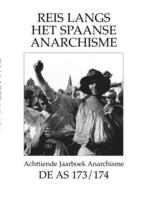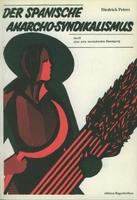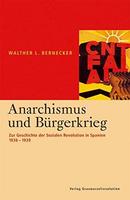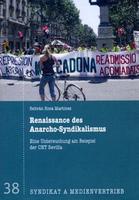Subject

photo credits: Wikimedia Commons
Anarchism in Spain has historically gained some support and influence, especially before Francisco Franco's victory in the Spanish Civil War of 1936–1939, when it played an active political role and is considered the end of the golden age of classical anarchism. There were several variants of anarchism in Spain, namely expropriative anarchism in the period leading up to the conflict, the peasant anarchism in the countryside of Andalusia; urban anarcho-syndicalism in Catalonia, particularly its capital Barcelona; and what is sometimes called "pure" anarchism in other cities such as Zaragoza. However, these were complementary trajectories and had many ideological similarities. Early on, the success of the anarchist movement was sporadic. Anarchists would organize a strike and ranks would swell. Usually, repression by police reduced the numbers again, but at the same time further radicalized many strikers. This cycle helped lead to an era of mutual violence at the beginning of the 20th century in which armed anarchists and pistoleros, armed men paid by company owners, were both responsible for political assassinations. In the 20th century, this violence began to fade, and the movement gained speed with the rise of anarcho-syndicalism and the creation of the huge libertarian trade union, the Confederación Nacional del Trabajo (CNT). General strikes became common, and large portions of the Spanish working class adopted anarchist ideas. There also emerged a small individualist anarchist movement based on publications such as Iniciales and La Revista Blanca. The Federación Anarquista Ibérica (FAI) was created as a purely anarchist association, with the intention of keeping the CNT focused on the principles of anarchism. Anarchists played a central role in the fight against Francisco Franco during the Spanish Civil War. At the same time, a far-reaching social revolution spread throughout Spain, where land and factories were collectivized and controlled by the workers. All remaining social reforms ended in 1939 with the victory of Franco, who had thousands of anarchists executed. Resistance to his rule never entirely died, with resilient militants participating in acts of sabotage and other direct action after the war, and making several attempts on the ruler's life. Their legacy remains important to this day, particularly to anarchists who look at their achievements as a historical precedent of anarchism's validity. Source: Wikipedia (en)
Works about anarchism in Spain 18
Historia del anarquismo en España
de AS 173/174: Reis langs het Spaanse Anarchisme
Un héroe trágico del anarquismo español
-
Enciclopedia Histórica del Anarquismo Español
Anarchisme en syndicalisme in Spanje: Ideaal en werkelijkheid, continuïteit en verandering
Der spanische Anarcho-Syndikalismus: Abriss über eine revolutionäre Bewegung
Las tradiciones culturales del anarquismo español
Strategien der Direkten Aktion und der Gewaltanwendung im spanischen Anarchismus
Anarchismus und Bürgerkrieg
Anarchist Organization
Widerstand in Spanien: Wandlungen in den Aktionsformen vom Bürgerkrieg bis zum Tode Francos
Revolution für die Freiheit: Stationen eines politischen Kampfes
Ökonomie und Revolution: Fabrik- und Stadtteilkomitees, Syndikalismus und die soziale Revolution in Spanien, Rolle der Industrieföderationen und des Anarchismus
Memorias
Anarchism and Workers' Self-Management in Revolutionary Spain
Anti-Aging für die Anarchie?
Genossenschaftliche Tradition und die Anfänge des Anarchismus in Spanien
Renaissance des Anarcho-Syndikalismus
Subject - wd:Q486236



















